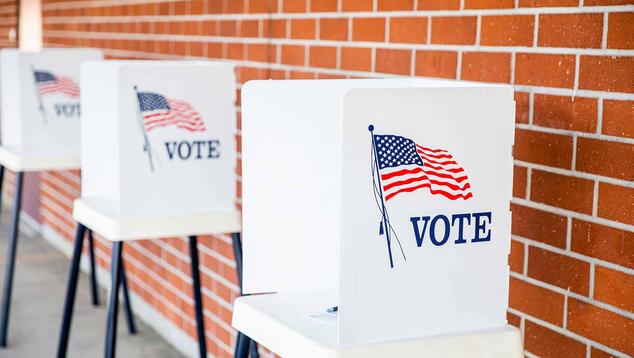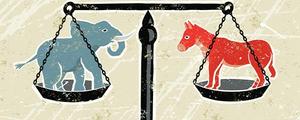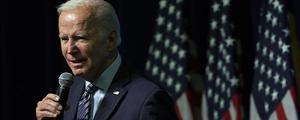This is the second in a series of briefs looking at what Americans want political candidates and elected officials to do about the key issues of the day. The first review looked at the consensus top problems leading into November's midterm elections -- the economy and inflation. This article focuses on three values issues -- abortion, critical race theory and gender identity -- all of which have surfaced in this year's primaries and in campaigning for the elections.
Abortion
Abortion is currently tied for sixth on the list of most important problems facing the nation in Gallup's latest update. The 4% of Americans who mention abortion is down from the 8% who named the issue as the top problem in July, which, in turn, was the highest in Gallup's history. The uptick in mentions of abortion this summer reflected reactions to the Supreme Court's controversial June 24 Dobbs decision overturning Roe v. Wade.
Polls that provide lists of issues and ask Americans how important each will be to their vote in November find abortion in a midrange position on such lists. About a quarter of Americans are "abortion voters," saying a candidate they vote for must share their position on the issue.
Abortion is one of the most-researched issues in contemporary public opinion polling. This research involves a number of ways of asking Americans about abortion, with resulting nuances and complexities of interpretations. (Gallup's abortion topics page links to much of our research on the topic.)
Despite the complexities involved, there are several clear-cut signals from Americans, providing direction on the abortion issue for political candidates and elected representatives.
Most significantly, it has been well documented that the majority of Americans do not agree with the Supreme Court decision overturning Roe v. Wade.
Roe v. Wade itself was not a binary ruling saying all abortions in all circumstances were constitutionally protected. The ruling established a basic constitutional right to abortion but also said legislatures could establish controls on abortion in the second and third trimesters of a woman's pregnancy. The big change resulting from the Dobbs decision is to remove the first part of that equation.
The most cogent explanation for the public's objection to the Dobbs ruling, then, comes from a mass of polling data showing that the majority of Americans do not favor an overall ban on abortion, which is now possible given the Dobbs ruling. More precisely, as my colleague Lydia Saad has summarized, Gallup's latest update shows that just 13% of Americans favor making abortion totally illegal.
At the same time, and broadly consistent with Roe v. Wade, the majority of Americans support the idea of restrictions on abortion in at least some circumstances, including in a woman's second and third trimesters of pregnancy.
Thus, if national lawmakers go to the American public for guidance on what to do about abortion, the data would say they (the lawmakers) should pass a law certifying legal access to abortion, but one that would allow restrictions in the middle to late terms and in other circumstances.
In short, it's fair to summarize public opinion by saying Americans want a guaranteed baseline of the right to abortion nationwide, even though they recognize this is different from saying abortion should be legal in all circumstances.
While not the most pressing issue nationally, abortion -- as will be seen for critical race theory and gender identity issues -- could be a so-called wedge issue that affects enough segments of voters to have an effect on election outcomes. Supporting this hypothesis, an interesting Gallup poll conducted in July found that among the 39% of Americans who said they have "felt the urge to organize or join a public demonstration about something," abortion was most likely to be named as the issue or cause behind that emotion.
Critical Race Theory
Today's focus on critical race theory is embedded in the nation's more general historical and current grappling with issues of race and racism. Critical race theory per se is a fairly arcane academic concept, but the term has been at the center of a cultural battle over the general idea of teaching about the history of slavery and racism and contemporary racial inequality in the nation's public schools.
The pushback comes from those who argue the instruction promotes anti-American views or racial division. Reflecting these concerns, legislators in a number of states have proposed legislation banning the teaching of critical race theory and its offshoots -- although, it should be noted, many educators say critical race theory is not in their curricula. President Donald Trump in 2020 issued an executive order banning critical race theory in federal agencies. Observers point to Republican Glenn Younkin's victory in the 2021 Virginia gubernatorial election as a reflection of these concerns, particularly in terms of control over what is taught in schools.
There is quite a bit of public opinion data on this issue. A review leads to two conclusions: 1) A not-insignificant percentage of Americans say they have not heard of or do not understand critical race theory; and 2) when asked about critical race theory, the public's attitudes are mixed, but tend to be somewhat more negative than positive.
Americans do appear to approve of the general idea of teaching older students about the nation's racial past, including slavery and its aftermath in today's contemporary society. An NPR/Ipsos poll, for example, shows that over three-quarters of Americans support "teaching high school students about slavery in the U.S. and its impacts." And Gallup polling conducted this past May found the majority of Americans agreeing that the United States government has a responsibility to take action to reduce the impacts of slavery. More generally, Gallup polling shows that Americans worry about race relations, and a majority define the status of relations between White and Black people as bad rather than good, suggesting support for efforts to face the issue.
Pollsters usually don't include critical race theory in measures of the importance of issues for the elections, although the much broader issue of race and race relations is included in most polls and generally is given midrange importance.
Teaching critical race theory certainly could become an issue in specific House or Senate races. Legislators looking to the public for guidance on the issue would acknowledge the nation's past and support efforts to educate students about slavery and its significant and lasting aftermath. But the public appears somewhat wary of the critical race theory appellation and efforts to focus discussions of race on generalized negative views of the nation and its people.
Gender Identity
The American public has undergone a rapid and profound shift in its views of norms dealing with what is and is not acceptable in American culture in terms of sex, sexual orientation, and associated behaviors. As one prominent example, Gallup polling shows that support for same-sex marriage has risen dramatically from 27% in 1996 to 71% today. Americans are also becoming more accepting of sex outside of marriage and nontraditional marital arrangements such as polygamy.
The public's attitude about individuals who change their gender identity is a relatively new focus for public opinion researchers, meaning there are few long-term attitudinal trends. But a number of recent polls conducted by Gallup and other polling organizations have measured specific transgender issues.
The results show that the majority of Americans are opposed to discrimination against transgender individuals, are in favor of transgender individuals serving in the U.S. military, are not in favor of allowing individuals to participate in sports based on their gender identity when it differs from their birth sex, and have mixed attitudes about so-called bathroom bans. More generally, a 2021 Gallup poll shows that Americans remain ambivalent about the morality of individuals changing their gender, with almost half saying it's morally acceptable and just over half saying it is not.
As is the case with critical race theory, a good deal of the focus in recent months has been on the inclusion of gender identity in public school curricula. Advocates have argued for teaching that emphasizes the need for acceptance of variability in sexual orientation and gender identity, while opponents disapprove of this approach, particularly for younger students.
Americans do not favor bans on teaching about gender identity in public schools -- they support the idea generally -- but they appear to be sensitive to the ages at which such instruction is initiated.
A recent New York Times/Sienna poll shows that fewer than three in 10 registered voters support gender identity being taught to students in grades 1-5. Approval, however, rises to the majority level when questions specify that the instruction would be for grades 9 and higher. And other polling shows that -- without reference to specific age groups -- the majority of Americans support the general idea of teaching about gender identity in public schools.
A little more than half of Americans are not happy with the current situation on this general issue, saying there has either been too much or too little focus on sexuality in general in public schools. But there is little direct evidence that gender identity issues will be a high priority for Americans in determining their vote in the forthcoming midterm elections. Recent Gallup polling shows that among the 55% of Americans who are dissatisfied with public education in this country, just 4% mention teaching about transgender issues as the reason for that dissatisfaction, while another 10% mention the teaching of political agendas more generally.
Gallup's latest estimate is that less than 1% of Americans identify as transgender (although that figure rises to 2% among members of Generation Z), so the actual number of people directly affected by government laws and regulations relating to transgender individuals is very small.
But the general public can certainly have strong feelings about civil rights for small minority groups that they are not members of, particularly given that three in 10 Americans say they personally have a friend, relative or coworker who has told them they are transgender. And policies relating to transgender issues can indirectly affect a much higher percentage of the population in some situations -- including the impact of introducing educational material relating to gender identity in school classes.
In summary, political candidates and elected officials can follow public opinion on this topic if they argue that groups defined by their gender identity should not be discriminated against and that all such people should be allowed to serve in the military. On the other hand, leaders would meet with majority approval by emphasizing that education and teaching about gender identity issues should be limited to older public school students.




